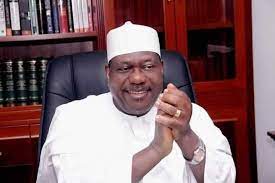Following the ongoing socio-political crisis in Togo, a Civil Society Organisation under the aegis of Togolese Civil League (TCL) has asked the Nigerian government and ECOWAS to urgently place economic sanctions and restrictions against Togolese officials.
The group said Nigeria must exercise its influence as a regional power to insist that the Togolese government respond to the ‘will of the people’.
It also called on ECOWAS to “consider economic sanctions and target restrictions against Togolese officials due to their ongoing violation of human rights.”
Addressing newsmen yesterday in Abuja, TCL Executive Director Farida Bemba Nabourema, said the Togolese government led by Faure Gnassingbé had allegedly “organised a methodical campaign to shut down its opposition, reduce freedom of expression and silence the civil society.
“Nevertheless, the people of Togo continue to relentlessly protest the government and are demanding political reforms that can lead to a democratic political transition.
According to the Nabourema, “a sustained political crisis in Togo is a factor of instability in the regions. There are currently hundreds of displaced Togolese in Ghana because of the recent government repressions. In addition, Togo constitutes a peculiar example of government in the region as it is reminiscent of the 1980s.
“The rule of law across the region is a factor of integration and peace, both essential to create a serene climate for business.”
Nabourema lamented that “unlike all the other countries in West Africa, Togo was yet to experience a democratic transition. The country has been under the rule of the Gnassingbé family since 1967.
“The absence of term limits and the total control of the government over the judicial and electoral systems have virtually made any transfer of power impossible.
“The people of Togo are yearning for a democratic transition that would foster social progress and economic growth. Past elections have been tainted with violence and, without meaningful reforms, future electoral processes are likely to escalate.”



